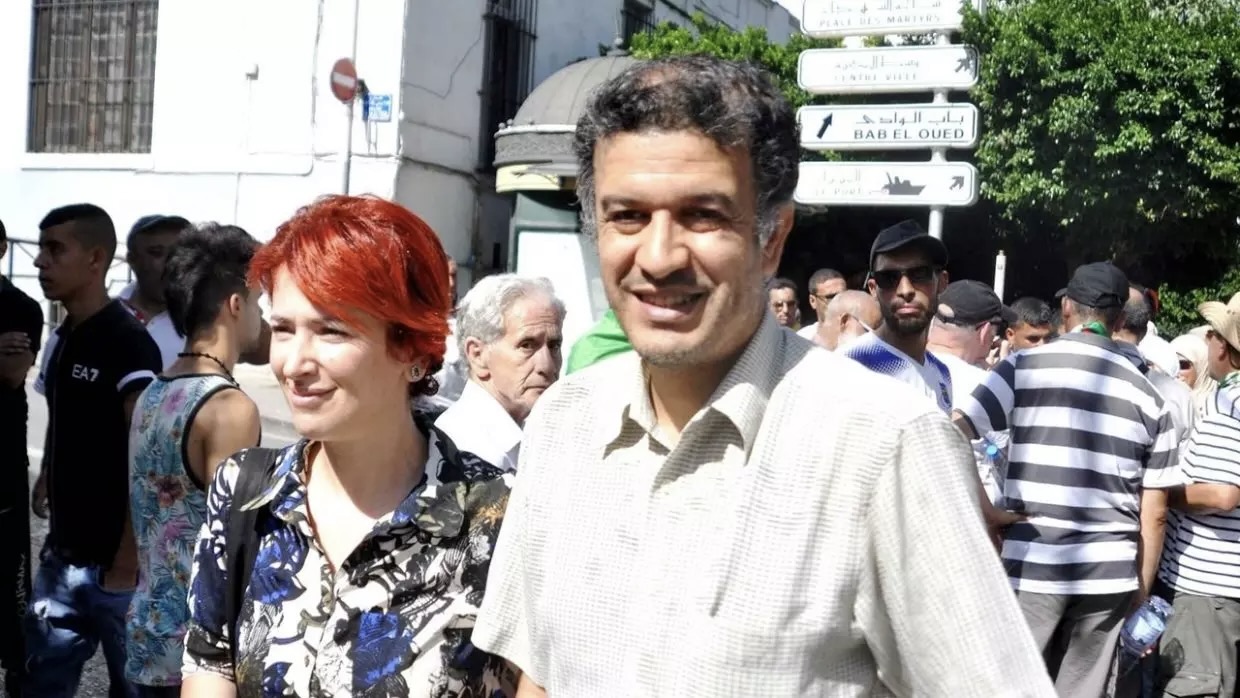Algerian leftist opposition leader and prominent Hirak protest movement figure, Fethi Ghares, was sentenced to two years in prison and slapped with a fine of 200,000 Algerian Dinars ($1400) on Sunday January 9.
Ghares who is the head of the leftist Democratic and Social Movement party (MDS), was convicted and sentenced by the court of Bab El Oued in the Algerian capital, Algiers, on charges including “attack on the person of the President of the Republic”, “contempt of body”, “dissemination to the public of publications that may harm the national interest”, “dissemination of information which could undermine national unity ”and“ dissemination of information which could undermine public order ”. Ghares is expected to appeal the verdict against him.
In July 2021, Algerian police raided Ghares’ home and took him to an undisclosed location. Following this he was formally charged and put in pre-trial detention until legal proceedings began in December.
Read more: Algerian leftist party leader Fethi Ghares arrested on trumped up charges
Ghares’ heavy-handed arrest and detention was widely criticized and denounced by human rights groups and other opposition political parties in Algeria. Mohcine Belabbas the head of the opposition party, Rally for Culture and Democracy (RCD) had termed it a “show arrest” and stated that it made it obvious that “the power persists and declares that the political actors of the opposition are from now on considered as criminals”.
Following Ghare’s conviction and sentencing on Sunday, several opposition political parties once again condemned the government persecution against opposition parties. Belabbas of the RCD described the development as a “politico-judicial scandal” and warned that Ghare’s conviction will “reinforce the distrust of the Algerian people towards the justice of our country”.
The Front des Forces Socialistes (FFS), another Algerian leftist party, in a statement said that it is proof of “a terrible decline in the climate of individual and collective freedoms in our country for some time.” They described the persecution of Ghare’s as “the criminalization of political action” and part of an “authoritarian strategy” which is expressed by “harassment and security and legal provocations against political, associative and trade union organizations, as well as human rights defenders and journalists.” The FFS demanded an immediate end to these kinds of repressive practices by the government against political and civil society opposition and warned that it would only contribute to worsening the volatile political situation in the country.
In April 2019, the protests organized Hirak movement had forced the resignation of Abdelaziz Bouteflika after 30 years in power. Since then, Hirak has been targeted by subsequent governments. Political and civil society leaders involved in the Hirak movement have faced targeted political persecution, protests have been met with violent repression, mass arrests of participants have taken place, in addition to the enacting of several restrictions and measures which experts say are specifically aimed at delegitimizing and damaging the Hirak movement and curbing the civil liberties in the country.
Among those who have faced persecution are the “poet of Hirak”, Karim Tabbou, journalists Khlaed Drareni, Rabah Kareche, Abdelkarim Zeghileche, and Mohamed Moulouj, human rights defender Fatiha Briki, and lawyer-activist Abderaouf Arslane.
Even now in 2022, almost three years after the 2019 uprising, more than 200 Algerians continue to languish in prison as political prisoners on charges related to the Hirak movement, according to the National Committee for the Liberation of Detainees (CNLD).





